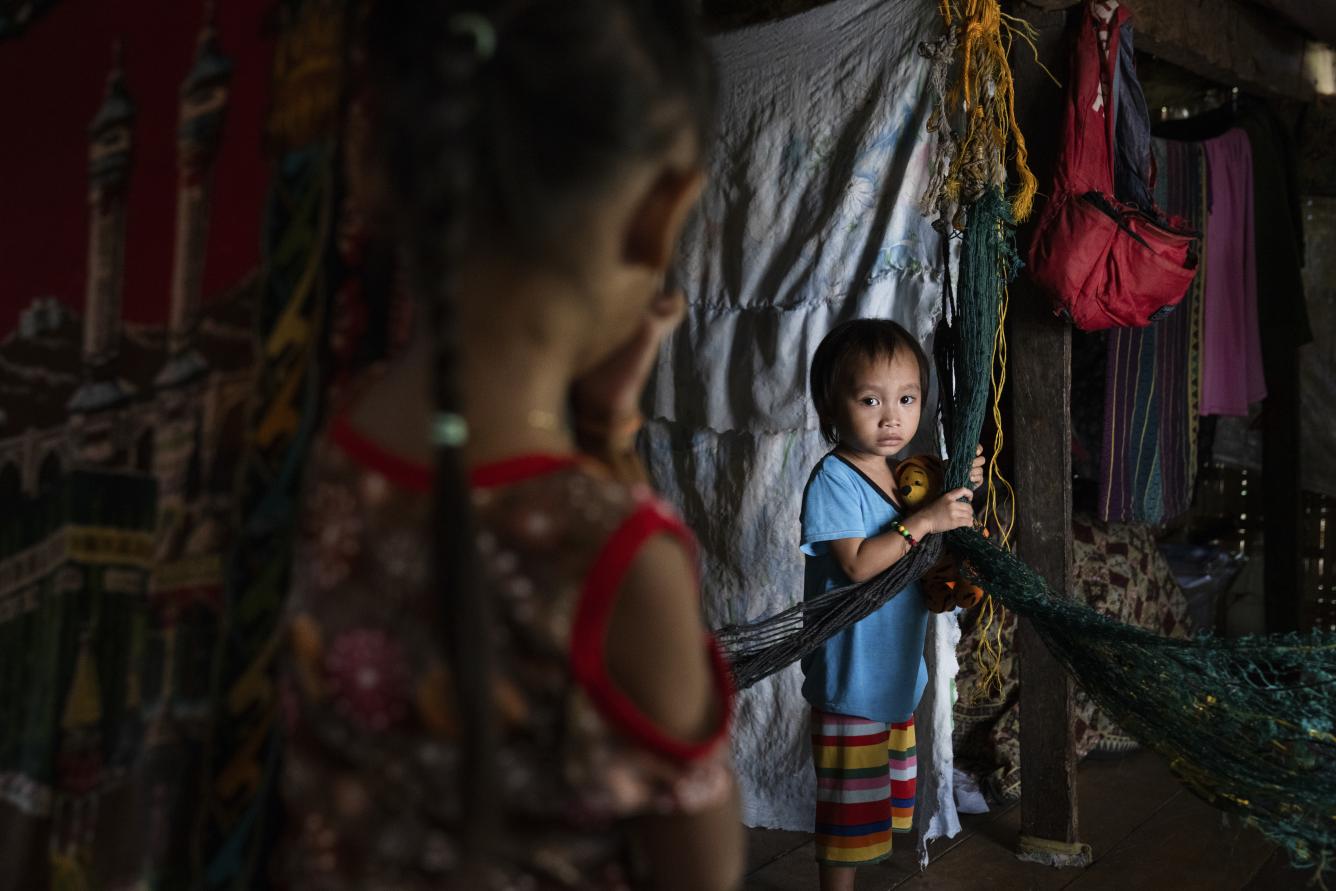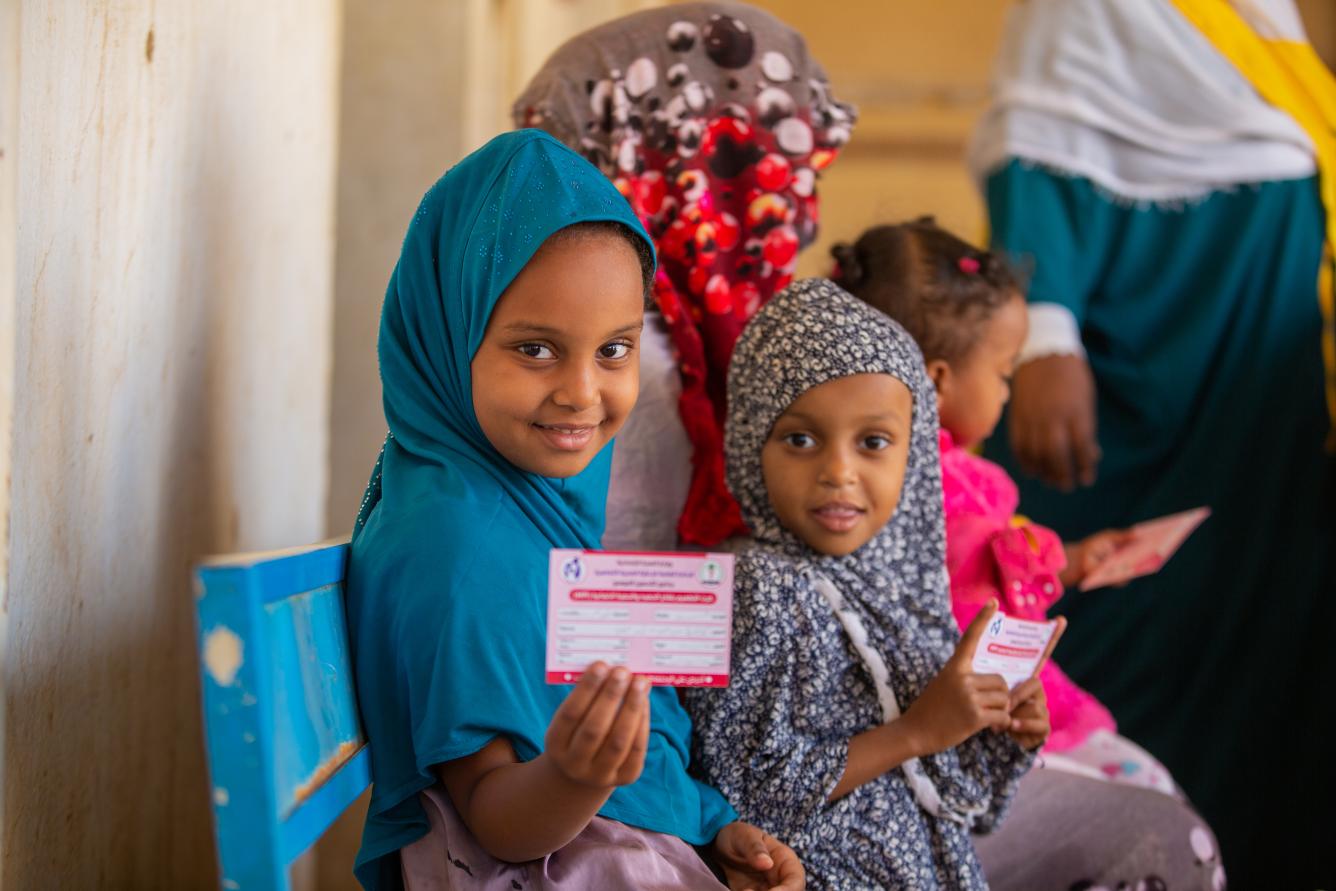What you need to know about measles
Measles is a highly contagious virus. For young children, it can be deadly.
In too many places, low vaccination coverage is creating opportunities for measles to spread.
Over the last five years, measles outbreaks have hit over 100 countries, home to roughly three-quarters of the world’s children.
But we know how to stop it. Measles vaccines are safe and effective. They are the best way to protect children from getting sick with measles and spreading it to others.
As measles cases surge, here are five things you need to know:
1. Measles can be deadly.
Measles kills nearly 300 people every day, approximately 12 people every hour, mostly children under five.
Even when children survive a measles infection, the virus can leave them with long-term health effects or permanent disabilities.
In some cases, severe complications can include pneumonia, severe diarrhoea, blindness and encephalitis (brain swelling). It can also weaken a child’s immune system and make them more vulnerable to other infections long after recovering from measles, a phenomenon known as immunity amnesia.
Any child who is unprotected from measles through immunization is at risk, with malnourished children and those under five most at risk.
2. Measles is one of the most contagious diseases on the planet.
Measles is a highly contagious airborne disease. It can spread easily as infected people breath, cough or sneeze, releasing virus particles into the air and onto surfaces that can remain infectious for up to two hours. Unfortunately, those infected with the virus can start to spread measles to others even before they know they have it, four days before the characteristic measles rash appears.
Once a child is infected with measles, 90 per cent of those they come into close contact with will become infected, if they are not already immune.
The measles virus does not recognize borders. Over the last five years, measles outbreaks have hit over 100 countries, including several that had previously eliminated measles all together.

3. Vaccines are the best way to stop outbreaks and protect children.
Measles vaccines are safe. Two doses of a measles-containing vaccine provide 99 per cent protection from measles for life. They are the best way to prevent children from contracting measles and spreading the disease to others. No child should risk serious health complications or death by contracting measles.
Since 1974, measles vaccines have saved nearly 94 million lives. They have protected more people than any other vaccine in the Expanded Programme on Immunization.
While most countries now include measles vaccines in their immunization schedules, too many children are still unprotected. The story of unvaccinated children is one of inequity, poverty and underserved communities.
4. Low vaccination coverage is contributing to measles outbreaks.
Because measles spreads so quickly, maintaining high vaccination rates across communities is critical to preventing outbreaks. Coverage of 95 per cent or greater with two doses of measles-containing vaccine is needed to protect communities from measles outbreaks. All children should be vaccinated against measles.
Currently, the global coverage rate of the first dose of the measles vaccine is 83 per cent, and the second dose is just 74 per cent – far below the level needed for protection. This leaves room for measles to spread and puts vulnerable groups, including unvaccinated children, at higher risk.
Routine measles vaccination and mass immunization campaigns in countries with high case rates are crucial for ending outbreaks and reducing global measles deaths.

5. A switch to five-dose vials can help governments save more lives.
Measles vaccines are often purchased in ten-dose vials. Once opened, health workers only have a few hours to administer all ten doses to children. Any unused doses will expire and must be thrown away.
Health workers can sometimes be hesitant to open a new vial for only one or two children, knowing the rest of the doses will go to waste. This hesitation and fear of wastage too often leads to unopened vials, leaving children without the shots needed to protect them from measles.
A simple switch from ten-dose to five-dose vials can help increase measles vaccination coverage and reduce wastage.
UNICEF’s role in combating measles
UNICEF’s mission is to reach every single child with life-saving vaccines.
- Each year, UNICEF delivers around 250 million doses of measles-containing vaccines. These vaccines are essential for protecting children against measles through routine immunization programmes and preventative campaigns in over 90 countries. The vaccines are also critical for responding to measles outbreaks, including in conflict and humanitarian settings.
- As the world's largest vaccine buyer, UNICEF leverages its significant purchasing power to secure a reliable and sustainable supply of quality-assured measles-containing vaccines at affordable prices. The measles-containing vaccines are safe and cost-effective in saving children's lives.
- UNICEF is part of the Measles and Rubella Initiative, a private-public partnership including WHO, CDC, United Nations Foundation and American Red Cross that spearheads a global push towards measles and rubella elimination and control.
By continuing to invest in and prioritize vaccines, we can ensure that no child anywhere dies of an illness we know how to prevent.
